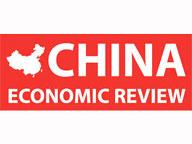Faculty News
—
Prof. Jonathan Haidt's book, "The Righteous Mind," is highlighted
—

Excerpt from LinkedIn -- "In his excellent book on moral philosophy The Righteous Mind, Jonathan Haidt argues that social binding is one of the secrets of the human race’s extraordinary rise, and that some cultural attributes of human society, such as religion or patriotism, actually inspire people to be willing to sacrifice their very lives for the benefit of the larger group. Military exercises such as marching in step together work well for armies precisely because they trigger our 'hiving' instinct."
Faculty News
—

Excerpt from LinkedIn -- "In his excellent book on moral philosophy The Righteous Mind, Jonathan Haidt argues that social binding is one of the secrets of the human race’s extraordinary rise, and that some cultural attributes of human society, such as religion or patriotism, actually inspire people to be willing to sacrifice their very lives for the benefit of the larger group. Military exercises such as marching in step together work well for armies precisely because they trigger our 'hiving' instinct."




















